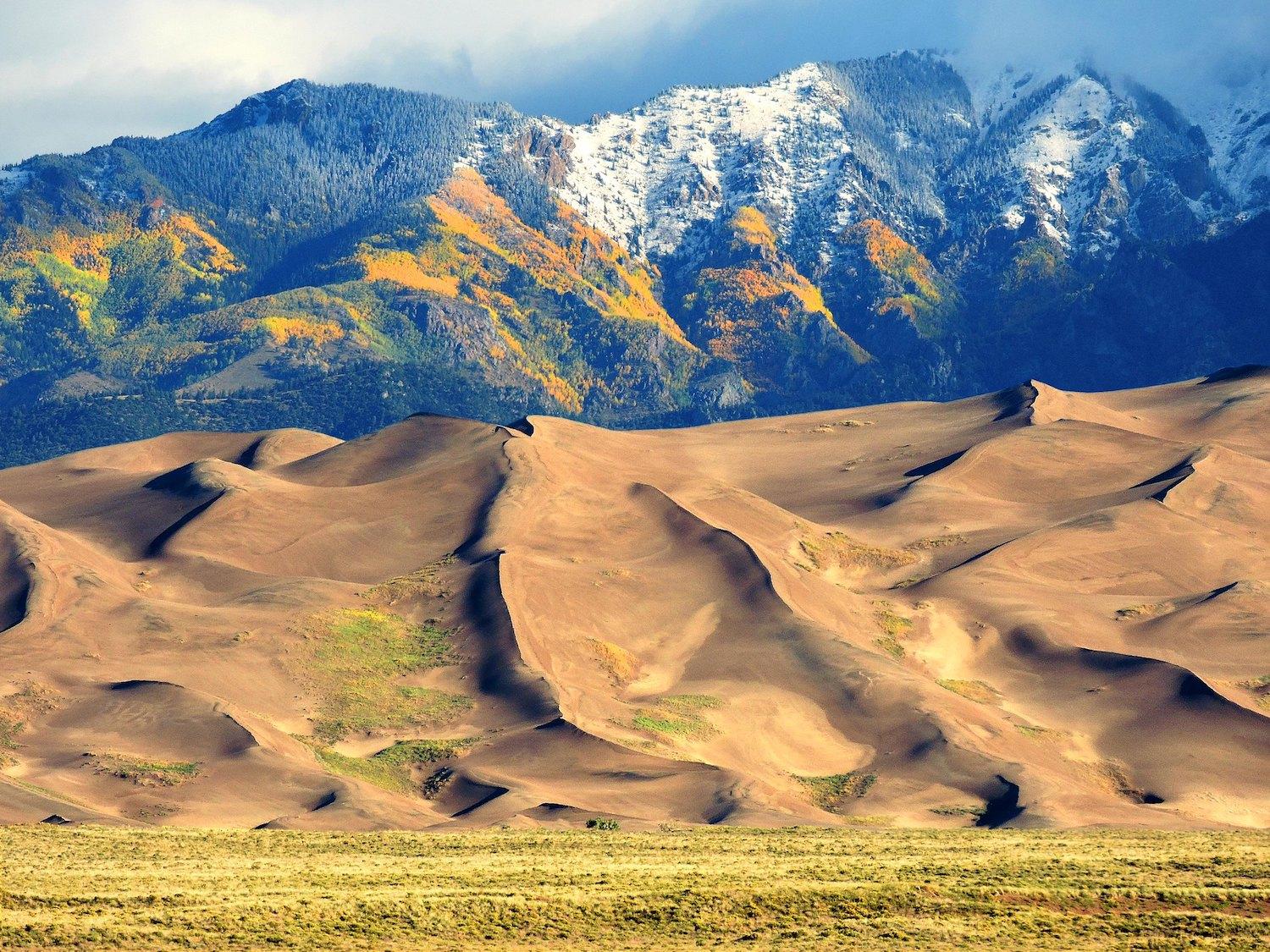
It costs just $6 for a backcountry permit at Great Sand Dunes National Park (above), compared to $45 at Grand Teton National Park/NPS file
As the Covid pandemic enters its third year, the desire to be outdoors continues to push the number of campsite and other reservations made through recreation.gov, which also has noticed an increase in cancellations.
"From 2013 through 2019, the number of reservations gradually rose each year from about 2.7 million to about 3.9 million. In 2020, that number rose to 5.5 million and then in 2021 it increased to over 9 million," noted Janelle Smith, a U.S. Forest Service public affairs specialist who works with the recreation.gov management team. "The average percentage of cancellations from 2013 to 2019 also gradually and expectedly increased from 9 to 13 percent during that same time period. In 2020, when the number of reservations increased dramatically, cancellations also increased, to 16 percent."
Smith did add that the increase in cancellations in 2020 was "due to the uncertainty around travel amidst the emerging COVID pandemic."
When a cancellation is made, $10 is held back from the fee the individual making the reservation paid. Those fees are used to "cover the cost of the initial reservation and are returned the agency," the spokesperson said. "The money returned to the agencies helps cover the cost of the contract-provided Recreation.gov service, as well as agency recreation program expenses."
Based on the $10 cancellation fee, if 16 percent of the 5.5 million 2020 reservations were cancelled, $8 million would have been returned to the agencies.
When a cancellation is logged, the available site appears on recreation.gov almost immediately, she said, adding that "[I]t is best to check the campground page often for updates."
One thing Smith couldn't answer was why there isn't always uniformity in the backcountry permit fees associated with reservations.
For example:
- Yellowstone National Park charges a $10 non-refundable fee to register for the "Early Access Lottery" application, and successful reservations carry a $5 per night per person fee; there's a $10 reservation fee, plus the per person per night fees, for permits obtained outside the Early Access Lottery.
- Rocky Mountain National Park requires a $6 reservation fee, and a $30 Wilderness Administrative Fee for a $36 total, regardless of number in a party or nights in the backcountry.
- At Grand Teton National Park, there's a flat $45 non-refundable fee required for each permit reserved via recreation.gov, and a $35 non-refundable fee for each walk-up permit obtained.
- Canyonlands National Park charges a non-refundable $36 fee for all overnight permit reservations, plus a $5 per person per night permit fee.
- Great Sand Dunes National Park and Preserve in Colorado charges a flat $6 permit fee, but you have to obtain it via recreation.gov, as walk-up permits are no longer available.
- At North Cascades National Park, there's a $6 fee if you apply to enter the Early Access Lottery. All reservations and walk-up permits cost $20 plus a non-refundable $6 transaction fee. The fee is also charged for first-come, first-served permits that are issued at a park Wilderness Information Center.
You need to pay close attention to both the specific park permit pages and the recreation.gov reservations page for details on when to apply for a permit, how to pick it up, cancellation fees, and more. For instance, you need to reserve a ticket on a ferry to go from the mainland to Cumberland Island National Seashore in Georgia, but if you're not careful you could reserve a ticket for a day the ferry doesn't operate.
"On the Cumberland Island National Seashore Camping Permits page on Recreation.gov, there is a 'Need to Know' element that states: December 1st - February 28th: There are NO ferry operations on Tuesday or Wednesday. If you are traveling to/from the island via ferry, please ensure your reservation does not arrive or depart on Tuesday/Wednesday during this time frame," Smith pointed out.

 Support Essential Coverage of Essential Places
Support Essential Coverage of Essential Places




Comments
One reason they're seeing more cancellations is because the system now encourages people to book in haste because it will be their only chance at a spot, then they later take the time to plan things out and realize that time frame won't work. They're creating FOMO which results in a free for all where people now have to plan their vacations around when they can get a spot, not necessarily when they want to go. They later reconsider and cancel.